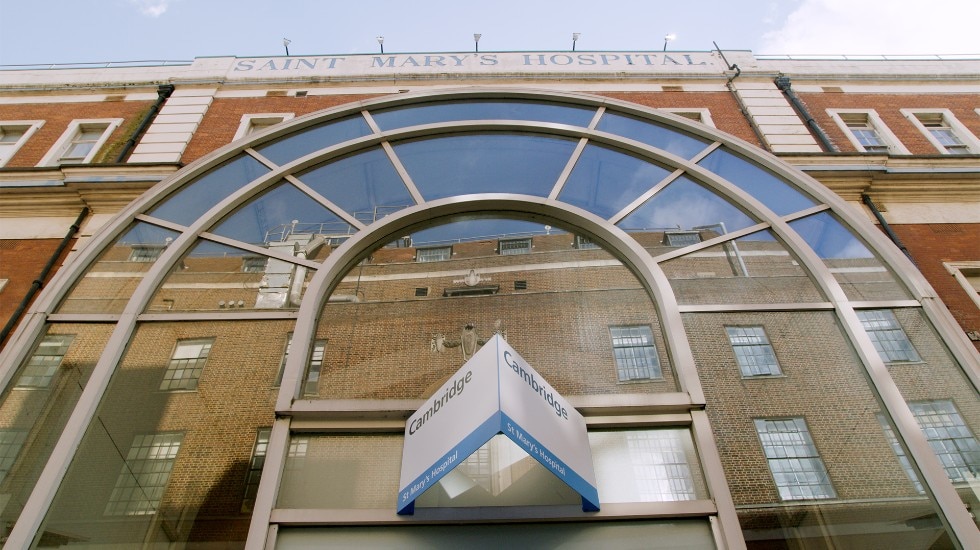Philips and Imperial College Healthcare NHS Trust cut patient waiting lists with late-night MRI scanning pilot
A new pilot of remotely-operated MRI scanners saw 90% of patients scanned within 3 weeks of referral
Sep 15, 2025 | 3 minute read
Farnborough United Kingdom – Royal Philips (NYSE: PHG, AEX: PHIA), a global leader in health technology, and Imperial College Healthcare NHS Trust, have embarked on a groundbreaking new pilot that could see thousands more NHS patients diagnosed each year by enabling out-of-hours MRI exams to be overseen remotely.

Running from January to July 2025, the new pilot uses Philips Radiology Operations Command Centre technology deployed at Imperial College Healthcare NHS Trust to maximise capacity by enabling experienced radiographers to support on-site teams from a remote location, enhancing patient care.
The pilot focuses on the potential for out-of-hours scanning, with appointments taking place between 8pm and midnight when the scanners would not normally be used. This new way of working enables the service to get the most from the equipment and gives patients greater flexibility with appointment times.
This follows a successful 12-month proof-of-concept pilot of Philips Radiology Operations Command Centre technology at the Trust to assess whether the technology’s use provided a scalable solution that could reduce training time, increase capabilities and capacity, while reducing scan time and recalls.
By the end of the 2025 pilot, extending the service at one of the Trust’s Community Diagnostic Centres from 12 to 16 hours per day, five days per week, resulted in a further 1,356 patients being seen in the evenings. The flexibility of out-of-hours appointments led to a reduction in Did Not Attend (DNA) rates to 1.1%, compared to the usual 5–7%, in addition to improved waiting list times.
In England, we’re seeing a growing shortfall of diagnostic radiographers – which leads to hospital bottlenecks and increasing wait times for patient diagnosis. The possibility of radiographers being able to support on-site colleagues remotely, as well as through extended hours as seen in our pilot with Imperial College Hospital NHS Trust, could truly change the game. Perhaps in the future, we will see scanners running for 24 hours a day – but until then, we must continue to prioritise improving digital infrastructure and workforce support within the NHS to provide better care for more people in the UK.
Empowering patients and NHS staff with out of hours scanning
The pilot caters to a growing demand from NHS patients who are willing to attend appointments through the night if it means avoiding long wait lists. A survey conducted by Imperial College Healthcare NHS Trust found that the vast majority of patients (88%) were open to attending appointments outside of traditional hours.
Not only do extended scanning hours mean reduced waitlists – they also mean that patients don’t need to take time off work to attend an appointment, and NHS imaging experts can access a never-seen-before opportunity to work remotely.
Alleviating NHS staff pressures in a successful 12-month pilot
Philips Radiology Operations Command Center technology has helped alleviate pressure by allowing experienced NHS imaging staff to support across a whole department, rather than being localised to one scanner and examination at a time. With multiple MRI scanners in operation across several sites, patient exams were conducted by on-site radiographers, present at all times to ensure patient comfort and safety, overseen by expert colleagues who can remotely operate the scanner whilst communicating directly with on-site colleagues.
The pilot has also maximised training opportunities for junior radiology staff. Multiple trainees at once can receive faster and more streamlined training from the most skilled personnel in the Trust, without being confined to specific scanners and locations.
The NHS radiology workforce is trained to the highest possible level - but in busy environments, making the best use of skilled staff for training and education can be a challenge. Thanks to the Radiology Operations Command Centre, we’ve roughly doubled the number of radiology staff that we can train. The option to view multiple scanners across multiple sites is unique. It has unlocked fast, safe, efficient training at the highest quality.
The use of Radiology Operations Command Centre for training at Imperial College Healthcare NHS during the 12-month pilot led to double the number of radiographers trained in 10 weeks – half the time of previous training (20 weeks). Data on file, provided by Imperial College Healthcare NHS Trust. Survey of 102 patients across Imperial College Healthcare NHS Trust sites over a two-week period, ahead of the 2025 pilot. Results from case studies are not predictive of results in other cases. Results in other cases may vary. Philips Radiology Operations Command Centre is a multi-vendor, multi-modality, multi-site, backward compatible, safe and secure virtualized imaging support solution.
Learn more on how Philips is working with pioneering hospitals to provide better care for more people, such as through the pilot with Imperial College Healthcare NHS Trust, here.
APPENDIX: Philips Radiology Operations Command Centre
It enables imaging experts to seamlessly interact remotely with the radiographers at the machines through audio, video, and additional chat functionality. This virtual support includes the ability for the expert user to view as though they were physically in front of the scanner along with the radiographer.
In addition, the expert user can view live video feeds of the IV contrast injection monitor as well as a room view to see what is taking place in the room. The system promotes these features in a concurrent fashion supporting the remote expert to connect to up to three scanners remotely at the same time.
Remote scanning and diagnosis during the pilot focused on simpler examinations for ambient patients – helping to reduce wait lists and allow more complex patients to be seen during daytime hours.
The technology is vendor-neutral, meaning it can be used to efficiently train and upskill radiographers on different systems in different locations, aiding workforce mobility within the NHS.
Sources [1] Responses obtained from 102 patients across Imperial College NHS Trust sites over a two-week period.








